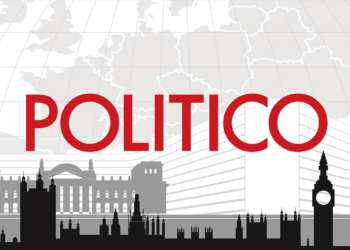The Trump administration is seeking more than $1 billion from the University of California, Los Angeles, to restore hundreds of millions of dollars in federal research funding that the government halted, according to a draft of a settlement agreement reviewed by The New York Times.
The proposal calls for the university to make a $1 billion payment to the U.S. government and to contribute $172 million to a claims fund that would compensate victims of civil rights violations.
If U.C.L.A. accedes to the demand, it would be the largest payout — by far — of any university that has so far reached a deal with the White House. Columbia University agreed to pay $221 million in connection with its settlement with the government, and Brown University pledged to spend $50 million with state work force programs.
The University of California’s president, James B. Milliken, said in a statement on Friday that the university had “just received a document from the Department of Justice and is reviewing it.”
He added, “As a public university, we are stewards of taxpayer resources, and a payment of this scale would completely devastate our country’s greatest public university system as well as inflict great harm on our students and all Californians.”
U.C.L.A. did not immediately respond to a request for comment. Julio Frenk, the school’s chancellor, said this week that about $584 million in research funding was already “suspended and at risk.” The university, like many other top schools, is deeply dependent on federal research money; about 11 percent of its revenues come from federal grants and contracts.
The Trump administration has largely targeted elite private universities in recent months as a part of what it has depicted as a campaign to fight antisemitism and reshape institutions that it views as cathedrals of liberalism.
But its turn toward U.C.L.A. has been sharp. On July 29, the day the University of California settled a lawsuit that accused U.C.L.A. of allowing pro-Palestinian protesters to block Jewish students on campus, the Justice Department said it believed U.C.L.A. had committed civil rights violations.
Dr. Frenk announced later that week the federal government had started freezing research money.
The White House’s demands of U.C.L.A. fit into a broad pattern of how the Trump administration has targeted California. The state’s governor, Gavin Newsom, is one of President Trump’s top political foes and a potential candidate for the White House.
On Thursday, the day before the terms of the White House’s proposed settlement emerged, Mr. Newsom suggested the University of California would not bow to the federal government.
“I will fight like hell to make sure that doesn’t happen,” said Mr. Newsom, an ex officio member of the university’s board of regents. “There’s principles. There’s right and wrong, and we’ll do the right thing, and what President Trump is doing is wrong, and everybody knows it.”
He added that he would “do everything in my power to encourage them to do the right thing and not to become another law firm that bends on their knees, another company that sells their soul, or another institution that takes a short cut and takes the easy wrong versus the hard right.”
But the University of California has shown a willingness to talk to the federal government. Mr. Milliken, the system’s newly installed president, said on Wednesday that the university had agreed “to engage in dialogue with the federal administration.” Mr. Milliken, though, sharply criticized the administration’s moves against funding.
“These cuts do nothing to address antisemitism,” said Mr. Milliken, who started his job on Aug. 1. “Moreover, the extensive work that U.C.L.A. and the entire University of California have taken to combat antisemitism has apparently been ignored.
The White House’s proposed terms, some of which were first reported by CNN, were not exclusively financial. Among other conditions, the government is seeking the appointment of a monitor to enforce the settlement’s terms, the abolition of scholarships connected to race or ethnicity and the cessation of diversity statements in hiring.
But the government included a provision, as it did with Brown and Columbia, that would seem to keep U.S. officials from using the settlement to interfere directly with academic freedom, admissions and hiring.
The administration is negotiating with a handful of universities, including Cornell and Harvard. And although Brown and Columbia each agreed to payments, the government’s settlement with the University of Pennsylvania included no financial penalties.
Alan Blinder is a national correspondent for The Times, covering education.
Michael C. Bender is a Times correspondent in Washington.
The post Trump Wants U.C.L.A. to Pay $1 Billion to Restore Its Research Funding appeared first on New York Times.




